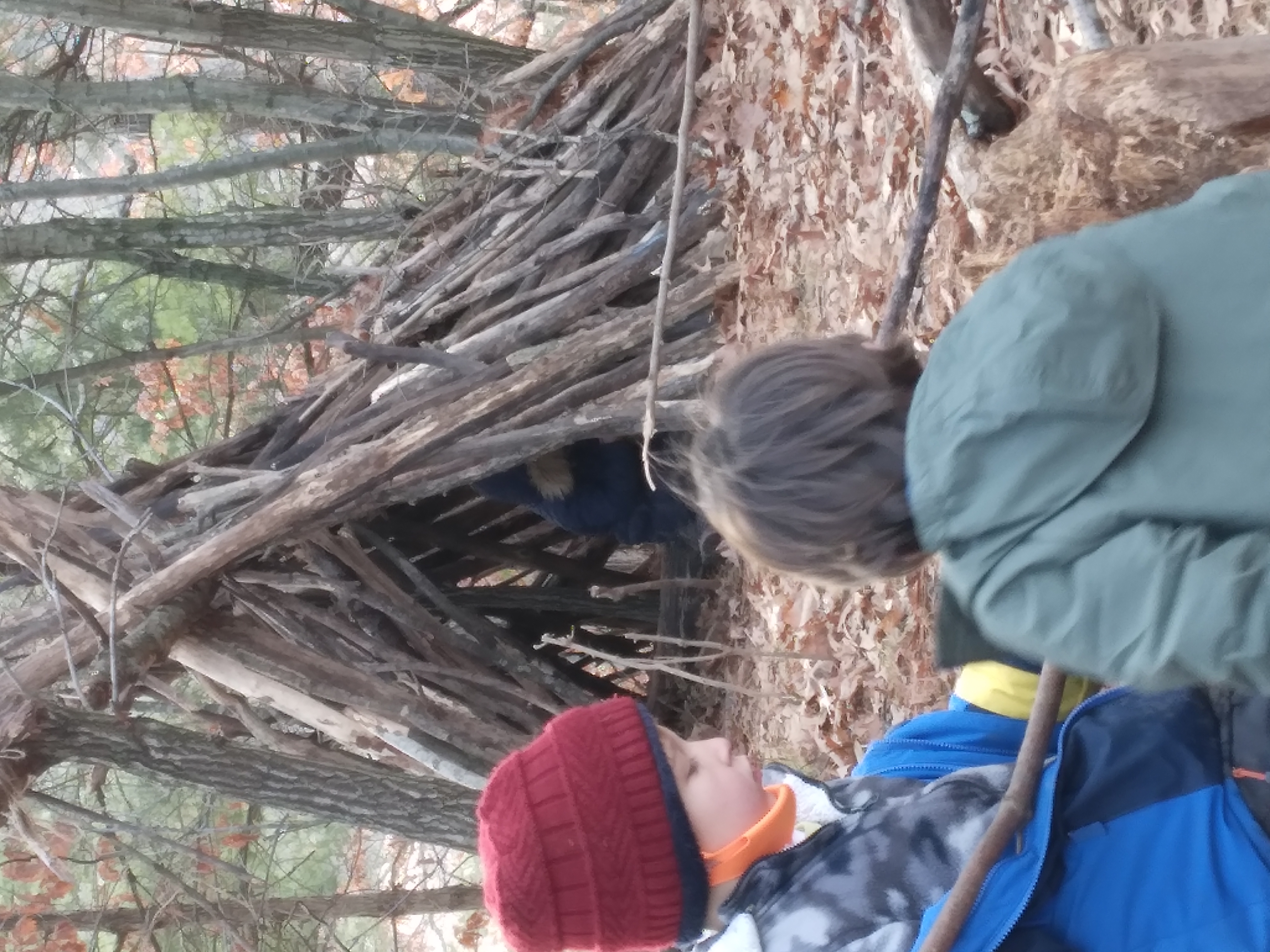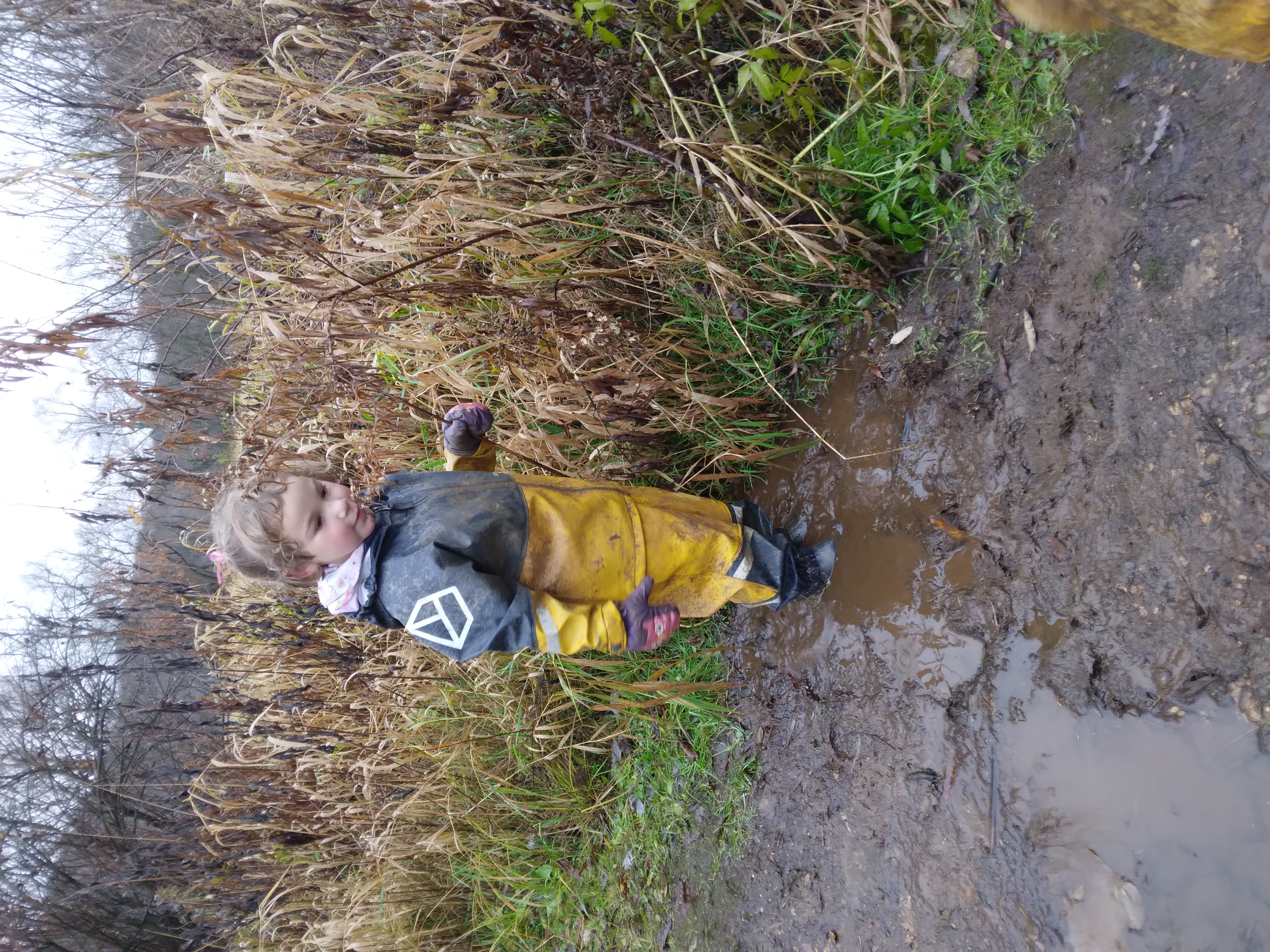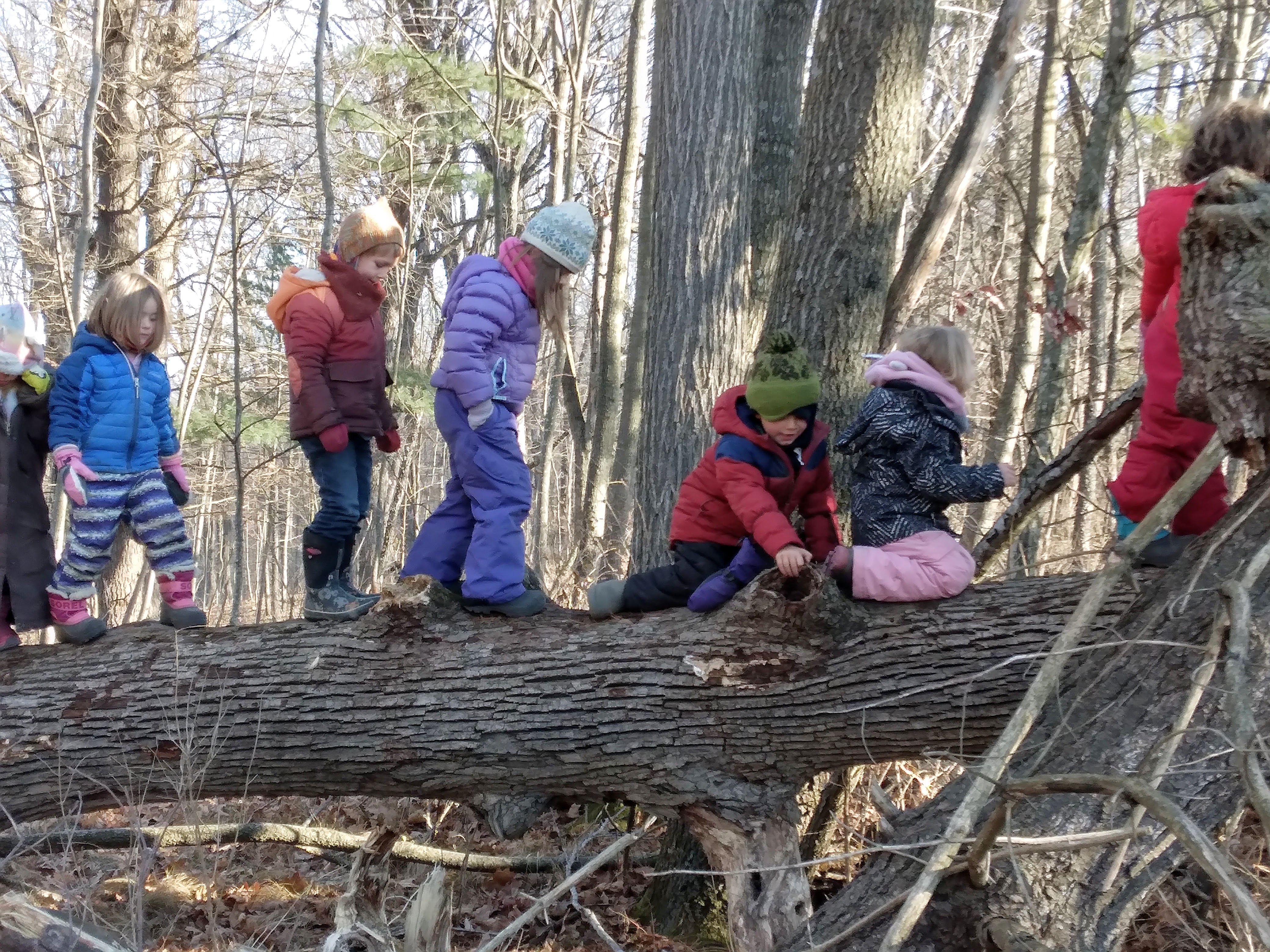Play in Nature
Forest School education gives students an opportunity to grow and learn from hands-on experiences with nature. We understand that extended periods of time in nature are beneficial to children academically, physically and emotionally.
In our Forest School we use experiences in nature to broaden and develop necessary life skills. For example, building shelters uses a child’s cognitive skills of attention, memory, observation and idea generation. Climbing, carrying logs, and hiking strengthen a child’s physical skills of balance, coordination, and endurance. Learning to problem-solve with peers sharpens social and emotional skills.
Children gain an understanding of themselves and the world around them while exploring and discovering through play in nature. Immersed in these pursuits throughout each day builds a lasting connection to and respect for the natural world.



How does play in nature help children meet learning standards that are covered in traditional classroom learning?
While children play they practice academic skills applied to real life situations. Skills around mathematics, science and English Language Arts can be incorporated. For example, Kindergarten students can learn to practice frequently occurring prepositions (e.g., to, from, in, out, on, off, for, of, by, with) as they build with sticks or help a friend move around an obstacle.CCSS.ELA-Literacy.L.K.1.e
An example for an older second grade student can be meeting a requirement for the standard to use reflexive pronouns (e.g., myself, ourselves) or to form and use the past tense of frequently occurring irregular verbs (e.g., sat, hid, told) while journaling or retelling a story about how they built with sticks or moved around an obstacle. CCSS.ELA-Literacy.L.2.1.c CCSS.ELA-Literacy.L.2.1.d It is up to the teachers as guides to carefully observe children as they play and introduce new concepts as the children are ready.
